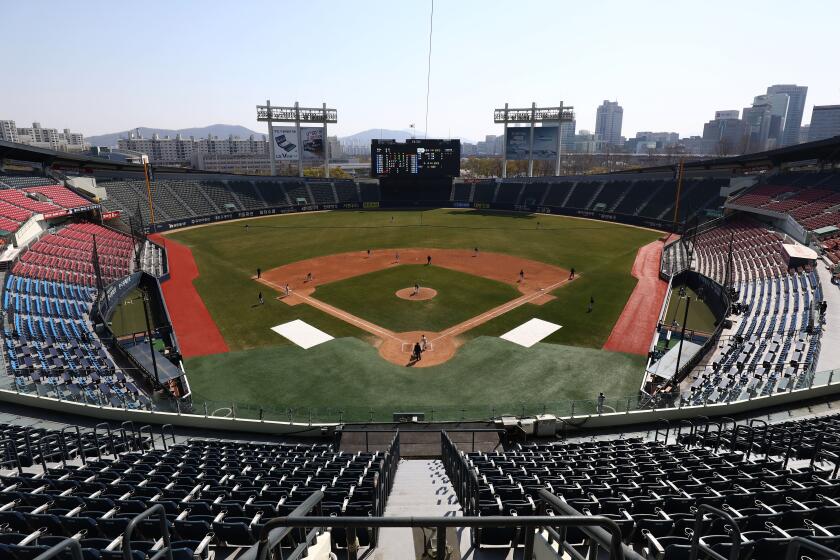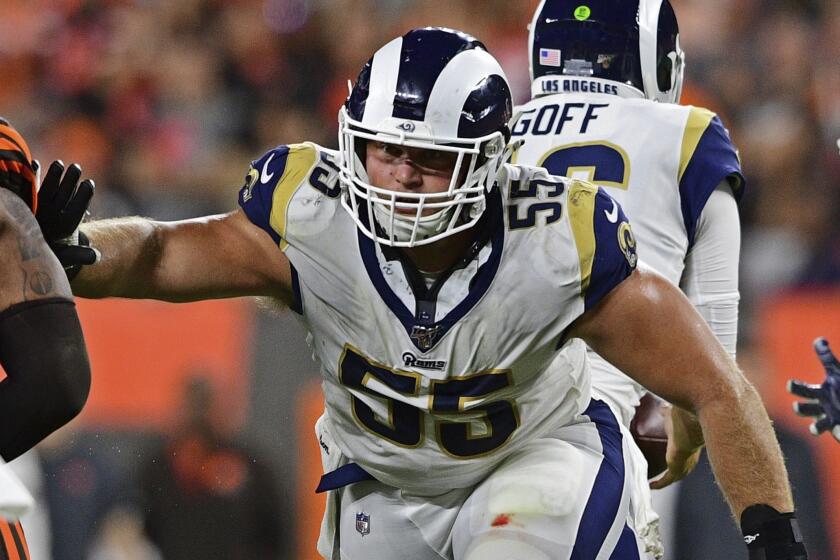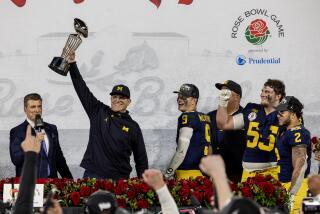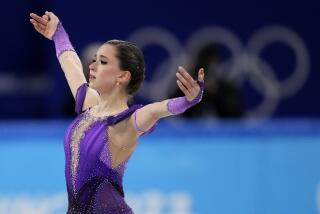Olympic athletes who qualified for Tokyo Games get good news
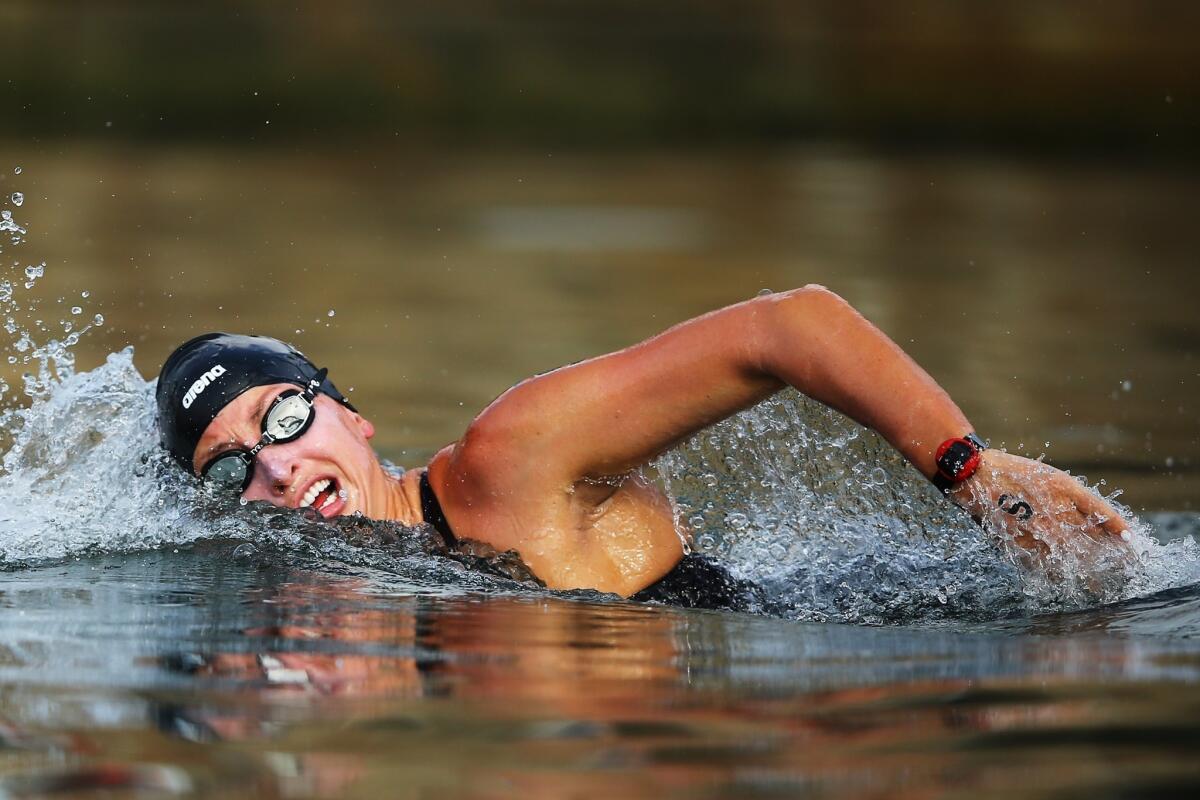
- Share via
When Olympic leaders postponed the Summer Games this week because of the COVID-19 pandemic, pushing the massive competition into next year, their decision raised a big question.
What happens to athletes who already qualified for Tokyo? Would they have to go back and compete for their spot again?
The issue was resolved Friday: The 33 federations governing each sport reached an agreement with the International Olympic Committee to honor all previous qualifications when the Games finally take place.
“Definitely a big relief,” said Haley Anderson, an open-water swimmer who made the U.S. team last July.
The qualification process varies by sport and nation. In some cases, athletes must prove themselves at a trials competition just before the Games. Other times, the spots are determined far earlier.
The U.S. has yet to make any selections in gymnastics and basketball but has filled much of the roster for sports such as open-water swimming, marathon and surfing.
Fifty-seven percent of the approximately 11,000 available slots for Tokyo were filled before the coronavirus outbreak shut down sporting events around the world, the IOC said.
Sebastian Coe, president of the international track federation, confirmed that every federation voiced support for preserving existing qualifications. The decision, he said, will allow his sport to move forward.
“What is important now is that we develop a clear and fair process for the remaining athletes to qualify, given many events have been postponed,” Coe wrote in an open letter.
The matter was of particular concern to Phil Andrews, chief executive for USA Weightlifting, who noted that some of his athletes feared “they may have to fight again for what they have already earned.”
“The IOC absolutely made the right call on this,” he said. “You have to protect the ones who were told they are going to the Olympics.”
A look at how sports leagues, including the NFL, MLB, MLS, NBA and NHL, are responding to the coronavirus outbreak.
Andrews and others see questions still to be answered.
Some federations cut their qualification process short, canceling the final one or two competitions at the onset of the pandemic. Should they stand by these truncated results or go back and finish later?
In other sports, each nation earns its number of slots based on how athletes fare in competition. Do the athletes responsible for securing that quota go to Tokyo, or does the nation wait until next year to choose its best performers at that time?
“You have these gray areas,” Andrews said. “There are still some details to be ironed out.”
Timing represents another potential dilemma.
Some national teams named their rosters as early as the summer of 2019, which means two years could pass before they compete in the Games. As one athlete mused: “A lot can change in two years.”
What happens if the qualifiers include someone whose performance slips badly next year? Or an athlete who suffers a severe injury and cannot train much before showing up in Tokyo?
“That’s a really interesting question to ask,” Andrews said. “What is the fairest thing to do?”
Marathon runner Jake Riley, who earned his place on the U.S. team last month, raised another potential problem, saying that without the IOC’s decision “there might have been some legal challenges from some of the qualifiers.”
For now, Olympic leaders and Tokyo organizers are focused on setting a new date for the Games. They must find a compromise that works for a long list of stakeholders and fits into a 2021 calendar already jam-packed with sporting events.
Though IOC President Thomas Bach suggested any time before the fall of next year could work, one of his top aides has pointed to late July through early August.
A look at athletes, coaches and others in the sports world who have tested positive of the coronavirus.
The track federation hopes to salvage part of its 2020 season, holding one-day meets late in the year so, as Coe said, “our athletes can get back into competition as quickly as possible when it is safe to do so.”
Riley is trying to remain flexible with his preparation. In an already stressful time, he is happy that his trip to Tokyo — whenever that might be — is secure.
“From everything I had been hearing, I felt confident that would be the case, but it’s nice to have it confirmed,” he said. “That would have been one more thing to worry about.”
More to Read
Go beyond the scoreboard
Get the latest on L.A.'s teams in the daily Sports Report newsletter.
You may occasionally receive promotional content from the Los Angeles Times.

